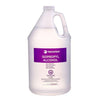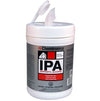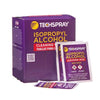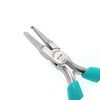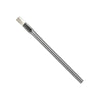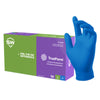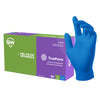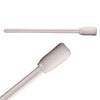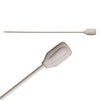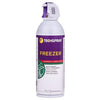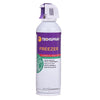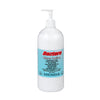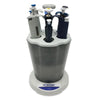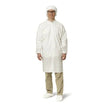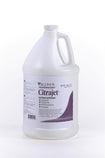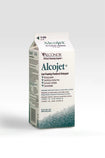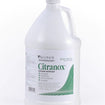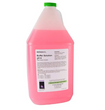- No products in the cart.
Top 5 Uses of Glycerin
Apr
21
2021
Glycerin, also commonly known as glycerol, has a chemical formula of C3H8O3. It is obtained from animal fats, plants, and is also a byproduct of biodiesel that is produced from triglycerides.
What is Glycerin?
Glycerin is a colorless, odorless liquid that is miscible with water. It has a consistency similar to syrup. Glycerin has a molar mass of 92.09 g/mol and a molecular density of 1.26 g/cm³. It is not corrosive and it can accept three hydrogen bonds. Glycerin has a boiling point of 290°C, a melting point of 18.2°C and a flash point of 177°C. It is characterized by a sweet taste and it is not soluble in oil.

What are the Top 5 Uses for Glycerin?
Glycerin has a multitude of uses in a variety of industries. Its advantageous chemical properties make it such a convenient compound that is an essential component in the food, drug and chemical industries. Numerous products lining the shelves in your local grocery store include glycerin in their ingredients list.
1. Sweeting Agent
Certain concentrations of glycerin have been marked safe for human consumption. It is a good additive for food because it has a low melting point and a high boiling point. Glycerin that is used in food, is commonly obtained from vegetables. Vegetable glycerin is being pushed as a zero-calorie sweetener towards those looking to reduce their sugar and caloric intake. Sweeteners like Stevia are in this group. They also do not elevate blood sugar which makes it great for individuals suffering from Type II diabetes.
2. Pharmaceutical Agent
Glycerin is important in the drug industry because it is an excellent vehicle for drug administration. It helps drugs maintain their moisture and their smoothness. This helps make medicines easy to swallow and ingest.
It can also be used as a moisturizer as it helps treat and prevent dry, itchy skin. It does this by forming a layer over the skin, trapping water inside.
3. Clinical Use
Glycerin is widely used as a suppository to relieve occasional constipation or to clear the bowels before a rectal exam. It works well as a laxative when administered rectally. This is because it encourages the intestines to hold more water content. The additional water causes the bowels to expand, allowing the blockage to be released. It is not recommended for children under two or pregnant or breast-feeding mothers unless recommended by a doctor.
4. Cryoprotective Agent
Glycerin has a very low freezing point which makes it a useful additive for antifreeze agents. It creates competition for hydrogen bonds which helps prevent the water molecules from freezing together.
Preventing the formation of hydrogen bonds, limits the number of ice crystals that can form in a cold solution. This is critical in biological laboratories that work with organic organisms because the cold temperatures preserve their samples without damaging the tissue.
5. Solvent
Laboratories use glycerin as a solvent since it is miscible in water. It’s low freezing temperature is beneficial because it can reduce the freezing point of various solution. This is really useful in processes like enzymatic analyses.
Caution When Using Glycerin
Overall glycerin is a chemical of low concern with limited hazardous impact. With human exposure, if it comes into contact with an unprotected eye, it can cause irritation, stinging and burning. Flush the eyes immediately with water. If it is ingested, give individual water to drink so the glycerin can be diluted in their system and rinse their mouth. If it is an airborne vapor, get the individual to fresh air as soon as possible. If it comes into contact with skin, wash the affected area immediately with water. Call a physician for further help with glycerin exposure.
It is important to remember that glycerin does have explosive reactions when combined with oxidating agents. It is a chemical intermediate for nitroglycerin.
Where can you Purchase Glycerin?
There are a variety of different grades of glycerin available for purchase. Some glycerin products that are developed from vegetables are available at your local grocery store. And glycerin for medical use can be obtained from a pharmacy or a prescription from a physician.
Laboratory grade glycerin for use as a solvent can be purchased from your laboratory chemical supplier. Lab Pro Inc. offers a variety of grades to meet your individual needs. Glycerin USP is a pharmaceutical grade standard for your pharmaceutical testing labs. There is also a technical grade and an ACS grade. Technical grade chemicals are less pure and for more basic processes. ACS grade conforms to American Chemical Society grading requirements and they maintain a higher purity.
Glycerin is even offered in volumes from one pint to one gallon to fifty-five gallons!
This variety of glycerin products offered makes Lab Pro Inc. a great one stop shop for your glycerin needs. If you have any questions regarding the right glycerin product for your process, please contact us and we can assist you through your process.
For over 40 years, Lab Pro Inc. has been committed to delivering the highest quality lab supplies, chemicals, and cleanroom PPE apparel to medical device and electronic manufacturing laboratories worldwide. To learn more, visit the biggest Lab Supply showroom in California, or contact us online or at 888-452-2776.
Resources
“Glycerol.” National Center for Biotechnology Information. PubChem Compound Database, U.S. National Library of Medicine, pubchem.ncbi.nlm.nih.gov/compound/753.
“Foods Containing Glycerin.” LIVESTRONG.COM, Leaf Group, www.livestrong.com/article/333686-foods-containing-glycerin/.






